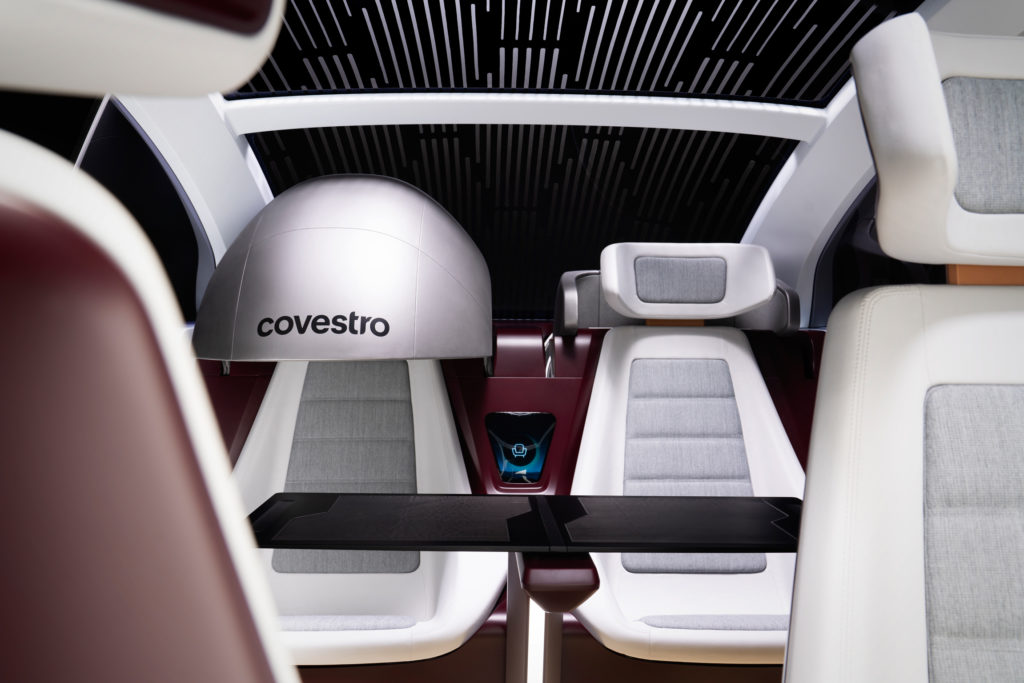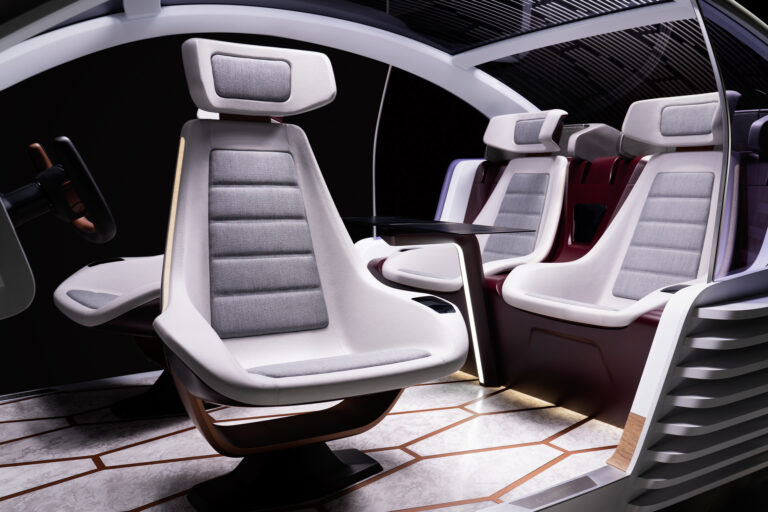Polymer manufacturing firm Covestro has presented its interior concept for future mobility, focusing on multi-sensor infotainment systems, innovative seating concepts, smart surfaces and personalized lighting.
Special emphasis has been placed on creating a seamlessly integrated, multifunctional 3D display, made possible thanks to the high optical qualities of Covestro’s Makrolon polycarbonate and Makrofol polycarbonate film.
The combination of in-mold decoration (IMD) and film insert molding (FIM) techniques helps create the display’s futuristic design, while producing the required durability. The latest human-machine interface (HMI) technologies support passenger communication with the car’s personal assistant as well as the outside world.
In addition to the use of polycarbonates and INSQIN technology for textile coating, Covestro has also decorated the interior with a combination of premium materials including wood, stone and aluminum. The vegan and water-based INSQIN coating offers the same attractive appearance as leather, but at lower cost and with reduced solvent emissions.
The concept’s seating system offers enough flexibility to expand the interior space while still maintaining high levels of comfort. An integrated and individually configurable lighting system provides further levels of customization and enables car manufacturers to differentiate their brands.
Together with its partners, Covestro has also developed a lightweight table tailored to the new travel habits found in autonomous vehicles. The prototype is made of a Maezio thermoplastic composite material and has been designed to be foldable so that it can be stowed between the rear seats to save space.
Finally, a sound-absorbing acoustic foam basin that uses Baynat polyurethane provides each passenger with an individual quiet space, independent of other passengers and the outside world. In addition, passengers can enjoy relaxing sounds such as the soothing sound of waves on the beach.




